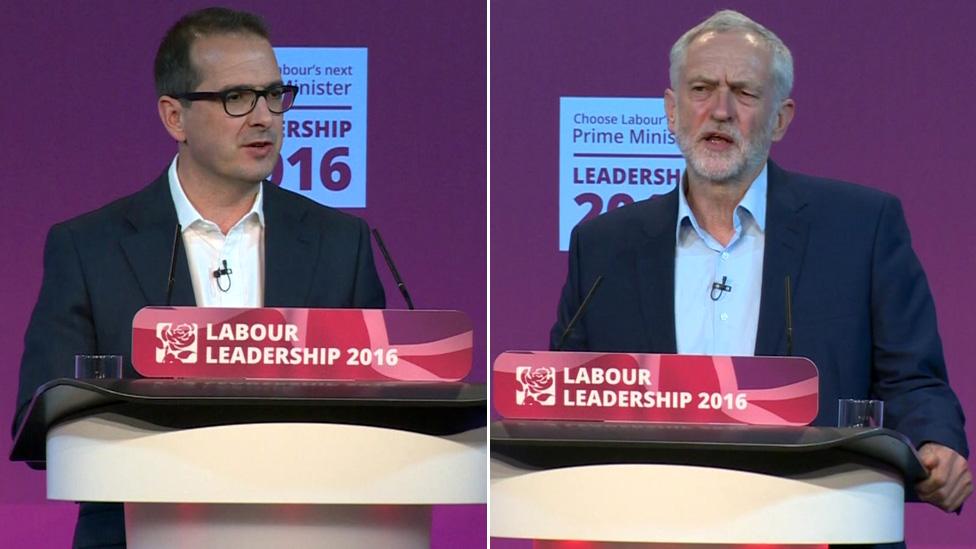Labour leadership: Smith warns of 'secret Tory NHS privatisation'
- Published
Owen Smith: Publicly-funded NHS is a red line
Labour leadership contender Owen Smith has accused the government of having "a secret plan to privatise the NHS" in England.
In a speech, Mr Smith said NHS spending on the private sector has doubled to £8.7bn during the six years the Conservatives have been in power.
The Department of Health said his analysis was "simply wrong".
Meanwhile, leader Jeremy Corbyn has said he wants a "National Education Service" based on NHS principles.
In an interview with The Observer he said it would mean free education for all, "from cradle to grave".
In other developments, the Labour leader has won the backing of a majority of local constituency Labour parties (CLP) in his re-election bid, securing 285 CLP nominations to Mr Smith's 53.
It comes as the two contenders prepare to take part in a Labour leadership debate on the BBC's Victoria Derbyshire programme on Wednesday.
Ahead of his speech on the campaign trail in Salford, Mr Smith said: "The NHS is our country's most valued institution - and people will be shocked to hear that the Tories have been putting together a secret plan to privatise it.
"We all rightly contribute to the NHS through our taxes - but we must make sure that money is spent on doctors and nurses, and not lining the pockets of private sector shareholders."
'Less privatisation'
In his speech at the University of Salford, Mr Smith said government spending on private providers in the NHS had "doubled".
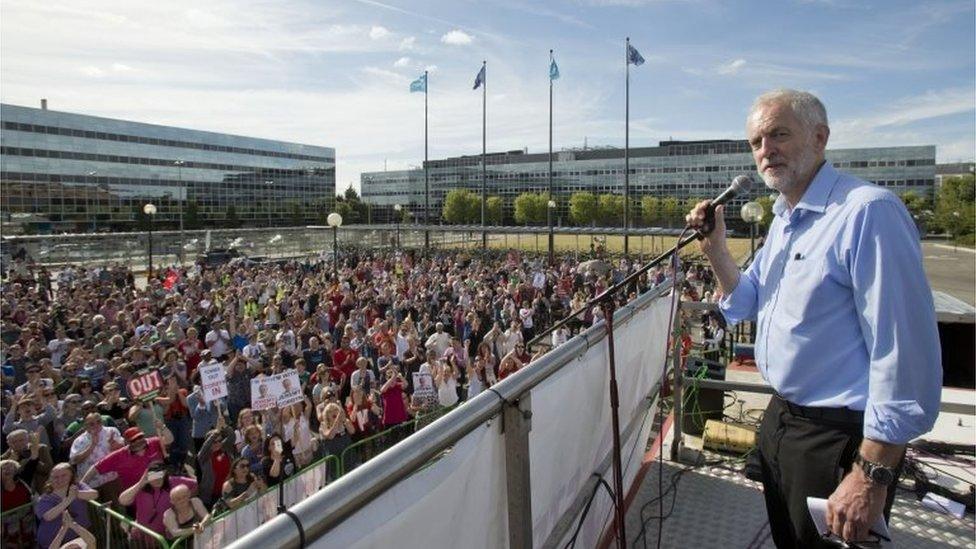
Mr Corbyn says a National Education Service will help close the productivity gap
He pointed out that the recently published Department of Health annual report showed that almost 8% of healthcare in England last year was bought from private sector providers - up from 4% in 2010.
He said the report said "there is very clear underutilisation of the private sector in the NHS and it set about putting in place a new work programme that would guarantee that more clinical services were being undertaken by private sector providers in the NHS".
"I am opposed to it," Mr Smith added, saying a "100% publicly funded NHS" would be "an absolute red line" if he was Labour leader.
"We need to see less privatisation in the NHS, not more."

Analysis, BBC political correspondent Eleanor Garnier
Owen Smith has just over five weeks to win this leadership contest. And it's clear he thinks being seen to be a socialist is essential for him to succeed.
He will hope this speech, focused on protecting the NHS from privatisation, will help in the battle to persuade the left wing of the Labour Party to back him.
And in attacking what he calls Jeremy Hunt and Theresa May's privatisation agenda he wants to show he can more be effective than his rival Jeremy Corbyn at holding the government to account.

In response to a question from the BBC's Alex Forsyth, he said there would always be some instances where the NHS had to rely on private providers, such as to make medicines, but he claimed the Conservatives were using them as "a Trojan horse to privatise the NHS".
Last month leader Jeremy Corbyn took a swipe at Mr Smith for comments he made about private health providers increasing choice in the NHS when he worked as a lobbyist for drug company Pfizer.
In his speech, Mr Smith reiterated his pledge to increase NHS spending by 4% a year, paid for by tax rises including a wealth tax on the richest 1% in society.
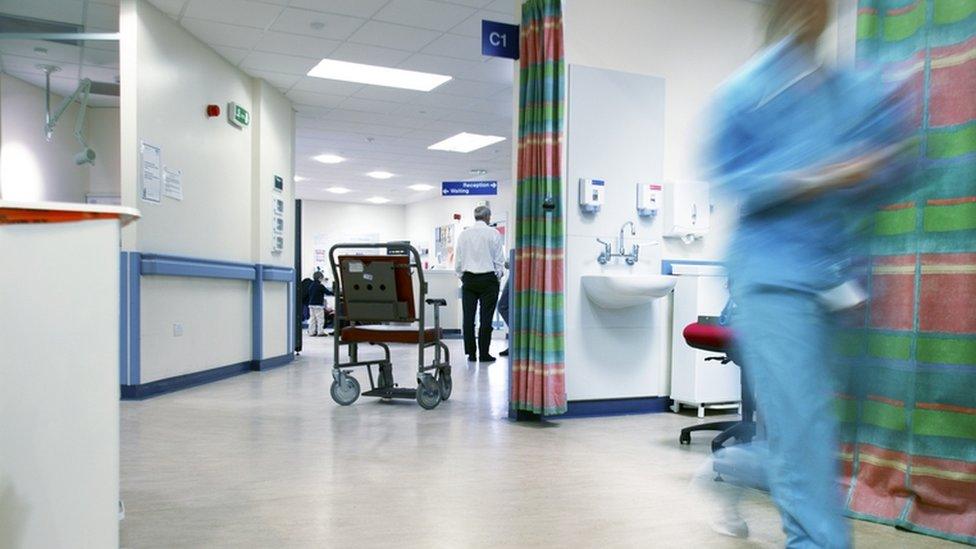
The Department of Health said it was increasing the NHS budget
A spokeswoman for the Department of Health said: "This analysis is simply wrong - this government was the first to ensure that doctors, not politicians, make decisions about who provides care."
She added that the rate of growth in the use of the private sector was slower than when Labour was in power.
"We are committed to the values of the NHS and to delivering a safer seven day service. We are investing an extra £10bn a year by 2020 so the NHS can introduce its own plan for the future," she said.
Meanwhile, Mr Corbyn has set out plans for a National Education Service to "put good education at the centre of our society" and ensure "nowhere and no-one is left behind".
"It will mean that children get a good start in life and for the rest of their lives will have their horizons opened and not be restricted in their choices by the education they can afford, rather than the education they have a passion for," he said.
- Published15 August 2016
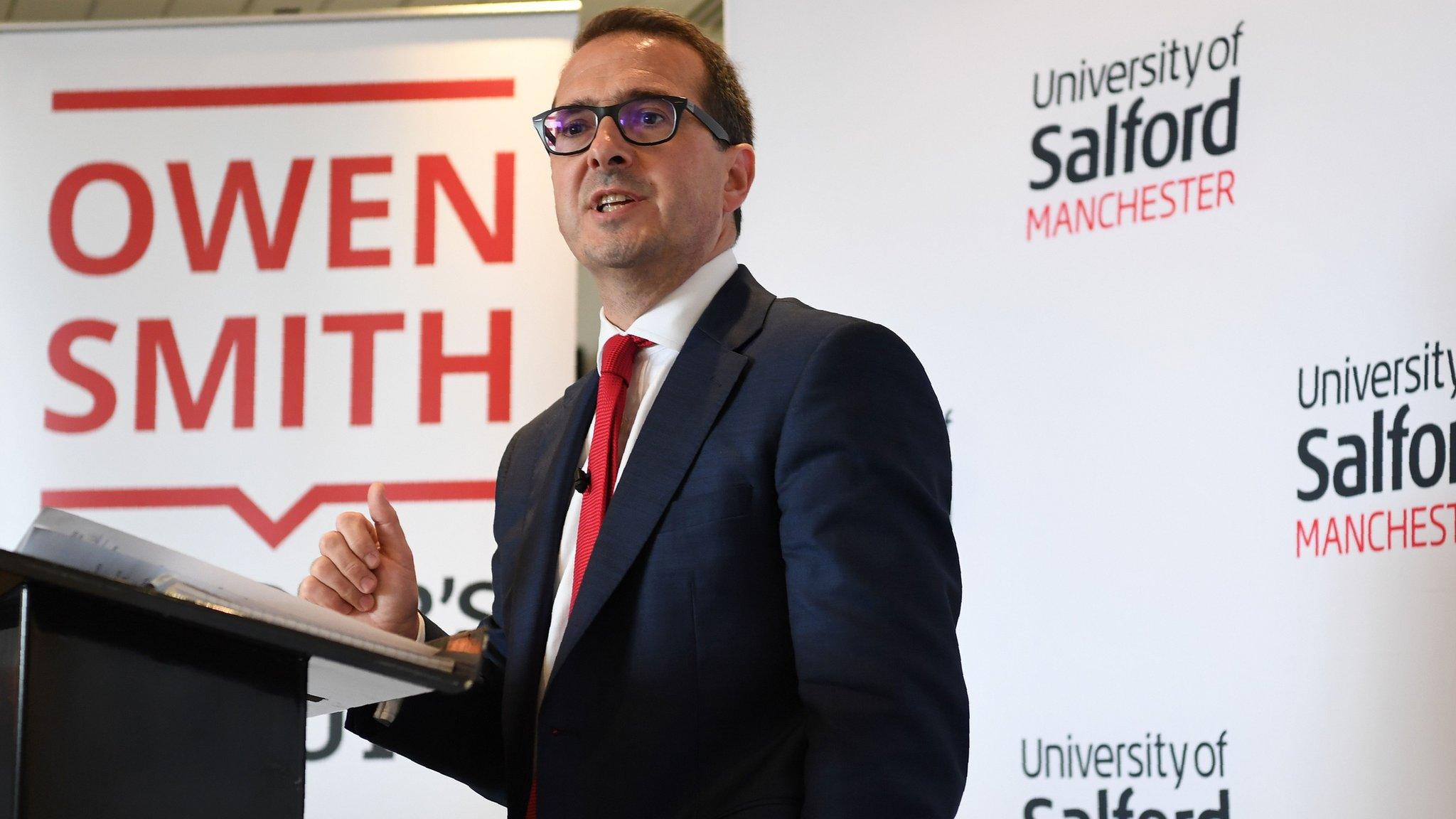
- Published20 July 2016
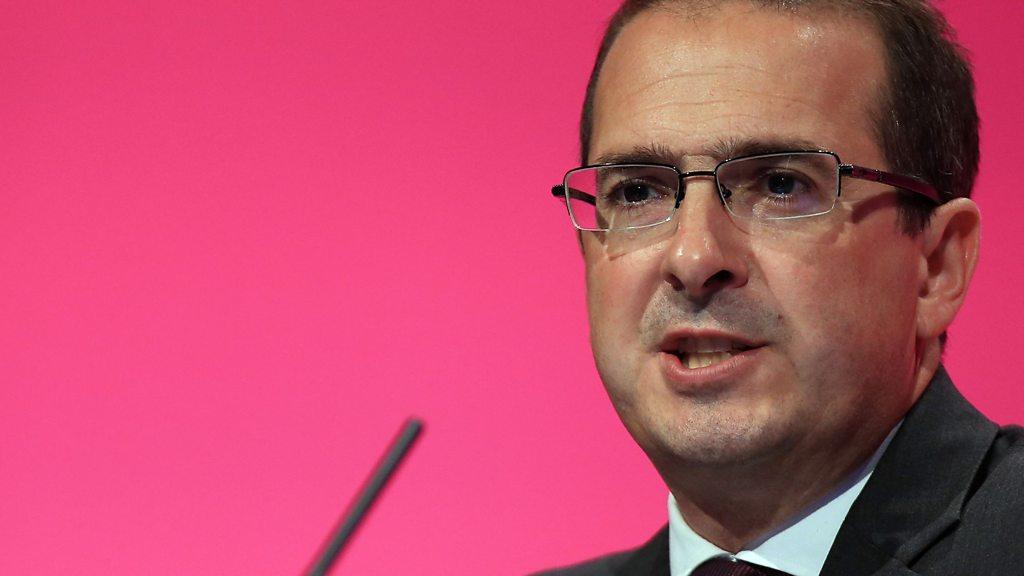
- Published11 August 2016
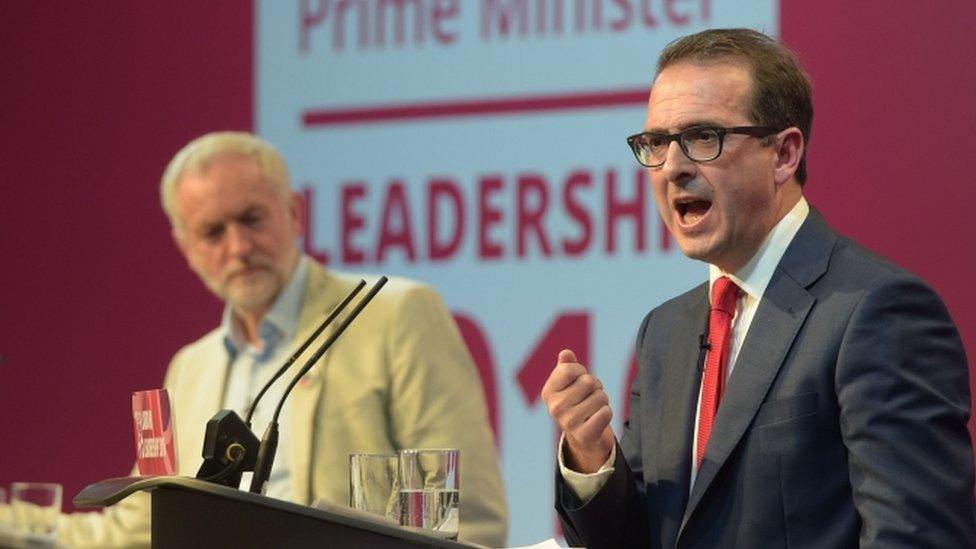
- Published14 August 2016
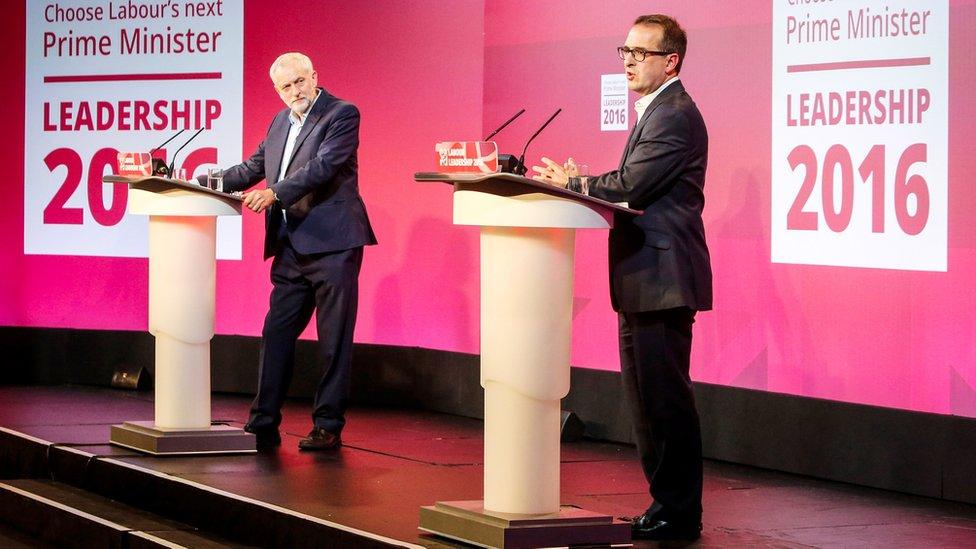
- Published13 August 2016
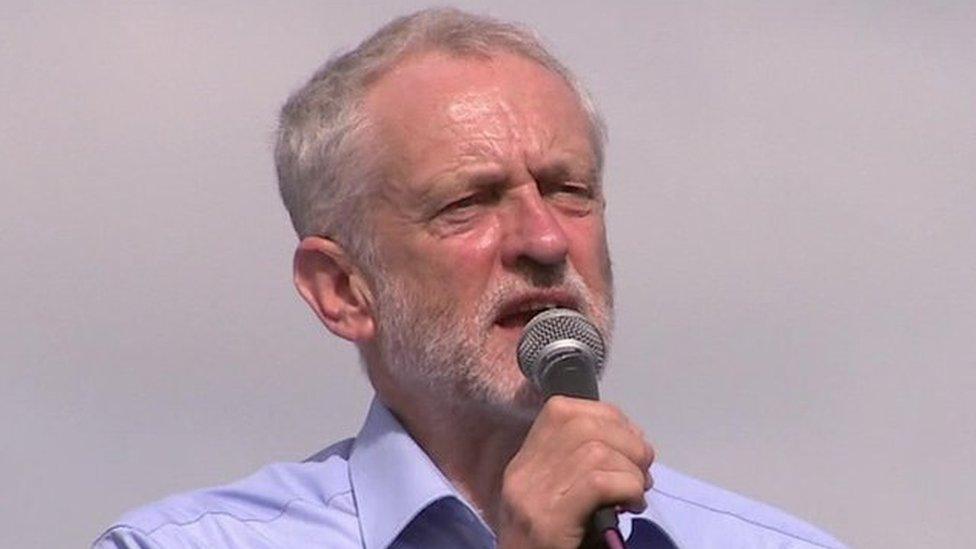
- Published12 August 2016
